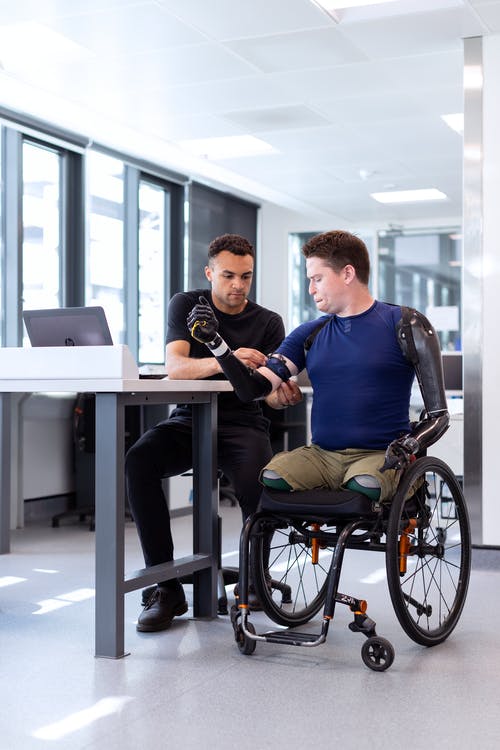There are many interpretation services that you can choose from if you are in search of an interpreter. There are three types of deaf interpreters: certified deaf, deaf with headsets, and drug-tested deaf. These are some tips for finding an interpreter who is qualified to assist the disabled.
Sign language interpreters
Sign language interpreters are often part of disability services. These professionals provide translations to enable faculty and students with hearing impairments to participate in a variety if activities. At the University of Texas at Austin, qualified students may request sign language interpreters for class, academic requirements, and out-of-class activities. Disability and Access coordinates the services of these professionals, who meet with students to discuss their needs. Students should register during the priority registration period, and submit their request as soon possible. This will ensure that students get the best results. To ensure that interpreters can meet students’ needs, students should plan their schedules at least one month in advance.
The Department of Health and Human Services (DHHS) offers brochures to help providers understand the communication needs of the deaf. Interpreting is required when filling in medical history forms, scheduling appointments, as well as during routine checks of vital sign signs. Call the office at disability services melbourne one week prior to your appointment to request an interpreter. If you have someone with hearing impairments, ask for them at the least one week prior to your appointment.
Certified deaf interpreters
There are many reasons to become a certified deaf interpreter. One reason is that you can better understand the unique needs for people who are hard of hearing or deaf. A certified deaf interpreter understands the different nuances of sign language and will offer a more detailed view of the community’s culture and diversification. Another reason is to add expertise to routine or unique situations. If you’re planning to expand your business or need to provide access to a facility or service for a disabled person, be sure to contact a professional deaf interpreter.
Medical professionals often enlist the services of qualified interpreters who can communicate in sign language. You can either hire interpreters for a temporary basis or in an emergency situation. Larger medical facilities need to have interpreters. Note takers and captioned videos are just a few of the services that can help improve communication. It is vital to have a qualified interlocutor available at all time. Register of Deaf Interpreters for Disabilities offers a free quote for qualified deaf interpreters.
Sign language interpreters equipped with headsets
West Virginia state laws prohibit discrimination on the basis of disability. Therefore, state courts must provide sign language interpreters equipped with headsets for deaf and hard of hearing individuals. Interpreters should be free. This is a vital service that should be available to all citizens. Discrimination should be avoided wherever possible. Communication Axess Ability Group can help you schedule interpreters to your event.
Many hearing impaired people are used to having a sign-language interpreter at court proceedings. However, they may not understand sign language. If you are not sure which type of sign language is required, you can request another type of interpreter. Bilingual interpreters can interpret sign languages as well as other languages. Communication Axess Ability Group is a sign language interpreter service provider, as well as certified court interpreters, and blind/deaf interpreter services.
Drug-tested deaf interpreters
It is important to check that the applicant has passed a background check as well as a drug test before hiring a deaf interpreter. The agency also has a strict policy for drug testing interpreters. A panel of Deaf, hearing and Deaf experts screen drug-tested interpreters. SCIS also performs background checks and drug tests of interpreters as needed. All interpreters must pass quality checks throughout their employment.
Both the Rehabilitation Act of 1974 and the American with Disabilities Act of 1973 mandate that medical providers communicate effectively with patients who are deaf. It is often difficult to find a qualified sign language interpreter in many medical settings. In addition to putting the health of patients at risk, a lack of qualified sign language interpreters also increases liability for medical providers and hospitals. Patients who are unable to understand the information provided can make mistakes and cause misunderstandings. To ensure safety for everyone, drug-tested interpreters are vital.
